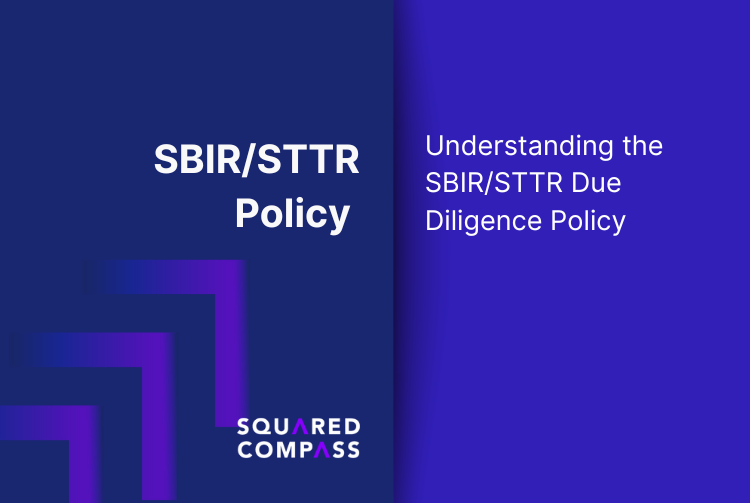Filter Resources by Tags

AI in Federal Contracting Just Got Real—Here’s What Small Businesses Need to Do
AI is no longer a future concept in federal procurement—it’s here, and it’s rewriting the rulebook. Agencies like DoD, GSA, VA, and DHS are embedding artificial intelligence into every stage of the acquisition process. Whether it’s evaluating your proposal, doing market research, or issuing solicitations, there’s a good chance a machine is involved. For small businesses navigating government contracting opportunities, this shift has big implications—and even bigger opportunities.

SBIR Scrutiny Is Rising—Here’s What Contractors Need to Know About Foreign Influence Risk
The SBIR/STTR programs have long been a lifeline for tech-focused small businesses looking to fund innovation and bring new products to market. But in 2025, these “America’s Seed Fund” programs are under intense scrutiny—not for how much they fund, but who they fund. If you’re a small business eyeing these grants, or already holding one, foreign affiliations are now a make-or-break factor. And agencies aren’t treating these risks equally.

FY2026’s Skinny Budget: What It Means for Your Government Contracts
You might’ve seen the headlines: on May 2, 2025, the White House dropped its Fiscal Year 2026 “skinny budget” blueprint, calling for a $163 billion cut to non-defense discretionary spending—nearly 23% across domestic agencies—while boosting defense outlays by 13% to about $1.01 trillion . For government contractors and small businesses, this isn’t just politics as usual; it’s a roadmap of where opportunity—and risk—will lie in the year ahead.

Navy Axes $568M in IT Contracts — Here’s What It Means for GovCon Firms
The Navy just pulled the plug on some of its biggest IT modernization efforts — and if you’re a government contracting business, especially in the tech or logistics space, this is a headline you can’t afford to ignore. We're talking about over $568 million in canceled contracts, including a massive human-resources overhaul and a failed logistics software program. And it's not just about what was cut — it’s about where the Navy is headed next.

The Pentagon’s New SWFT Program Could Be a Game-Changer for Software Vendors—If You’re Ready
The Department of Defense just launched something that could open the door to more government contracting opportunities—or lock you out if you’re not prepared. It’s called the Software Fast Track (SWIFT) program, and it aims to slash the time it takes to get your software approved for use on military systems. For small businesses, especially those navigating the government contracting certification process, this could be a game-changer.

AI Education Executive Order: What It Means for Contractors and Small Businesses
Big news from Washington: On April 23, 2025, President Trump signed an Executive Order aimed at massively expanding Artificial Intelligence (AI) education across the U.S. K-12 and postsecondary systems. The move isn't just about coding classes—it’s about building a full ecosystem of AI literacy for students, teachers, and lifelong learners. And if you’re a government contractor or small business, especially those offering training, technology, or workforce solutions, this could open new doors.

The State of DoD SBIRs: Funding, Policy, and Future Outlook
Despite ongoing uncertainty in federal funding discussions, SBIR has maintained strong bipartisan support due to its role in fostering innovation, particularly in critical technology areas like artificial intelligence, cybersecurity, and energy resilience.

Small Business? How You Can Successfully Leverage SBIRs to Build Your Products
For many small businesses, securing funding to develop innovative technologies can be challenging. The Small Business Innovation Research (SBIR) program offers a powerful avenue for startups and small firms to obtain government funding to build, test, and commercialize their products.

Unlocking Growth Opportunities: AFWERX’s STRATFI and TACFI Programs for Small Businesses
Get past the SBIR chasm of death with AFWERX’s STRATFI (Strategic Funding Increase) and TACFI (Tactical Funding Increase) programs which offer unique opportunities designed to help bridge the funding gap between SBIR/STTR Phase II and Phase III.

How to Leverage Heilmeier’s Catechism: Creating Winning SBIR Proposals
In the competitive landscape of the Small Business Innovation Research (SBIR) program, crafting a compelling and coherent proposal is crucial. One powerful tool that can help streamline and strengthen your proposal is Heilmeier's Catechism.

Understanding the SBIR/STTR Due Diligence Policy
The newly established SBIR/STTR Due Diligence Policy and Implementation Guidance are designed to mitigate security risks and protect the innovations and technologies that small businesses bring to the defense sector.
